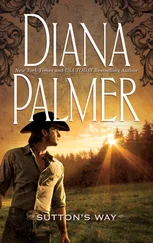We tapped it into my old VCR. This time I didn’t feel disturbed. Instead I felt as if an old friend had dropped by. I now loved this odd obscure movie.
“Did you ever think about how men in the movies are rarely shown as high school teachers? How they are always university professors? I think we are supposed to think Mason is a failure because he teaches high school,” Jay said.
“What about To Sir with Love ? That was a male high school teacher. He was the hero,” I said.
“That was a redemption drama — a missionary film. Totally different.”
He poured out the rest of the wine. Mason was in his bathroom, popping pills with an anguished expression.
“Don’t look in the mirror! Whatever you do, don’t look in the mirror! Oh, he looked in the mirror,” I said. I was pleased to make Jay laugh. It is nice when you have seen a movie a few times and you have someone you can talk to while you are watching it. The repetition makes the movie lose some of its darker impact, but it gains something else: as it seeps deeper into familiarity, it begins to make a permanent claim on your sensibility, your aesthetic history. It is a lens through which you see the world, and that requires a certain amount of interaction, of movie talk. And I love that. I hate when people say shhh, shhh, like you are in church. I want to watch a good movie again and again, and again, and I want to crawl into it with my friends and talk. Jay didn’t shhh at me. Not at all.
“It is hard to buy Mason moonlighting as a cabdriver. It seems so unlikely to me. He does do that seethy humiliation and self-loathing so well, though,” I said.
“Did you ever notice how in all his movies James Mason always has a scene in a robe? In Lolita, in Five Fingers, in A Star Is Born. And in The Seventh Veil . Mason, it appears, was required to wear a robe in every movie he did,” Jay said.
“Not in every one. Not in The Desert Fox. ”
“Yes in The Desert Fox. ”
“He didn’t wear a robe in The Desert Fox, did he? A Nazi smoking jacket?”
“I’m afraid he did. A rather smart dressing gown, with a matching monogrammed handkerchief pressed to his mouth from time to time. Don’t you remember how they have to drag him from his convalescent bed because he is the only one who really understands the desert?”
“I never actually saw it,” I said. “But you’re on to something here, he has these robe scenes, doesn’t he? A very neatly tied robe. Or perhaps a smoking jacket. Maybe it is because women want to imagine him in these intimate circumstances, but they also want to imagine he is stern and elegant all the time. Robert Mitchum or Burt Lancaster, they could be sloppily bare-chested. But if we saw James Mason in careless naked abandon, it would be like the end of civilization.”
“Except Age of Consent. I recall a growling Mason rolling around naked with Helen Mirren in Age of Consent, ” Jay said. “Of course, that was the sixties—”
“Oh my,” I said. “That’s just—”
“Yes,” Jay said.
After the movie, we had a gentle, tentative kiss. I took his hand and led him to my bedroom. We undressed in the forgiving twilight. He was slight, with mottled middle-aged skin, standing naked by my bed. A little like James Mason, I thought, with his accent and all.
The next time we met, he brought a copy of The Seventh Veil. I hadn’t seen this film before. It not only starred a young and severe James Mason with a mysterious Byronesque limp, but it also featured a woman with a memory problem pulling back the “veils” to recover her troubled, fragmented past. It was hard not to like a guy who had an instinct for indulging my eccentric longings.
Jay and I began to meet once every couple of weeks. It was an affair without urgency or agenda, it seemed. We’d see a movie — he continued to bring me hard-to-see films — we would have dinner, and we would sleep together. In the morning we would say goodbye. But we were not in love. We didn’t have those exhausting conversations that in-love people have. We didn’t talk about our failed marriages, although I did discover, eventually, that he was once married to an American woman. We didn’t do the life-story stuff. I knew only what pertained to the present — that, for example, he would be gone for two weeks around the holidays so he could visit his family in England.
After he gave me my birthday present, we watched Odd Man Out. I didn’t tell Jay any of my birthday anxieties. Not because I wanted to withhold something. I just didn’t feel them when I was with him. I didn’t want to talk about myself; I wanted to talk about movies. Somehow, in the time between being young and where I was, the life-story recital grew too long, both dull and complicated. When I was eighteen, I wanted to tell my lovers every inch of every moment that led to this miraculous moment. I thought that would make them understand me, and then they would have to love me. But now that I was older, and actually had a life story, I didn’t feel like telling it or hearing it. I just wanted him to press against me as we slowly figured our bodies out. I understood our real stories lived there anyway.
Ada came to visit. My favorite thing is spending the occasional weekend with Ada. When she still lived in LA, she would come over for dinner every week or so. But now that she lived in New York, I would get these wonderful weekends with her. I would take a plane to the city. I would stay with her in her studio apartment in Greenpoint. She would introduce me to her latest boyfriend. We would go have a glass of wine at her new favorite bar. We would sit up late talking. Even after we went to bed (in her double bed, under her pale pink satin duvet with the large, pale pink Art Deco swirls of stitching and cording), we would continue talking. What did we talk about? She told me everything. And I listened. We were like college girlfriends.
This time she was coming to LA for two nights. She had a documentary film project she was trying to raise money for. Her production partner, Lisa, had set up some meetings at the cable channels that supported beginning filmmakers. We sat on the patio and ate cheese and drank her favorite rosé champagne. Her early years of waitering in nice restaurants had left her with expensive tastes in food and wine. I delighted in pleasing her and strove to spoil her for the few weekends I had with her.
“I drove over to Nik’s today,” she said.
“I invited him to come by tonight, but he didn’t feel like it.” “He is so funny — he showed me his latest Chronicle entries and played the corresponding music for me.”
“I’m sure he loved doing that.”
Ada took a sip of her pink wine. She took a drag off her cigarette. I know this is an awful thing to say about your kid, but she looked good with a cigarette. I thought this, even knowing how my brother fell into long hawking fits every morning. And coughing fits throughout the day. Bronchitis every winter. But when a young person smokes, it is different. It just underlines their excess life. It looks appealing and reminds you they feel as if they have life to spare. They have such luxury of time that they can flirt with lethal addictions. They have plenty of time to heal and repair later. A young woman like Ada would eventually discard these things. When you are old, like Nik, when it is a very old habit, smoking looks mostly like a reckless delusion. But for Ada it was an abundance, a kind of fun, a kick off of a shoe, a sip of pink champagne.
By any standard, reasonable light, I appeared to be a crappy mother. I had an inappropriately casual relationship with my daughter. Of course her father, Chris, saw it that way. Even Nik— Nik, for God’s sake, the least judgmental person on earth — thought I was too easy on Ada. It is all true. But Ada, somehow, still managed to become this wonderful, thoughtful young woman.
Читать дальше












